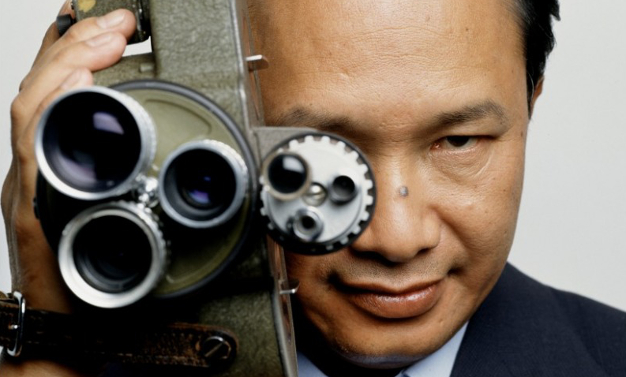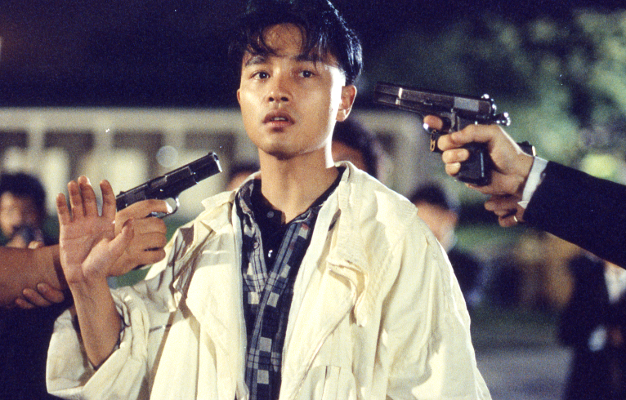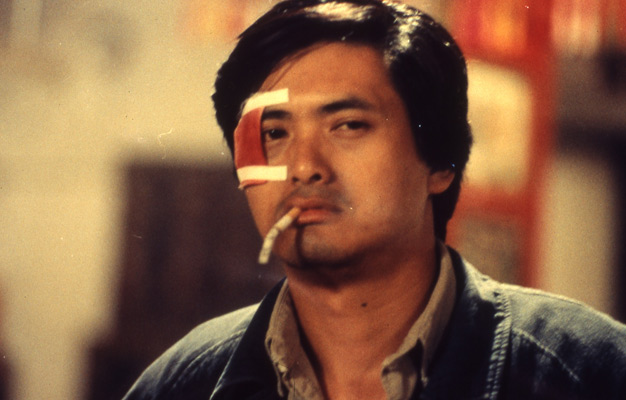Archiwum - 9. Festiwal Filmowy Pięć Smaków
John Woo: Kręcę współczesne filmy wuxia
W programie 9. Pięciu Smaków znalazło się sześć hongkońskich arcydzieł filmu gangsterskiego i kamieni milowych w rozwoju kina akcji wyreżyserowanych przez Johna Woo.
W połowie lat 80. kinematografia Hongkongu eksplodowała produkcją dziesiątek sensacyjnych filmów. Sprawcą zamieszania był John Woo, a wszystko zaczęło się w roku 1986.
Woo był już wówczas doświadczonym twórcą filmów wuxia, ale wciąż czekał na swój pierwszy przebój. Spotkanie z wybitnym producentem, Tsuiem Harkiem, i znanym głównie z finansowych niepowodzeń aktorem, Chow Yun-fatem, zaowocowało filmem "Lepsze jutro". Pokaz tego przełomowego dzieła z cyfrowo odrestaurowanej kopii otworzy 9. edycję Pięciu Smaków.

Marcin Krasnowolski, Pięć Smaków: Podczas 9. edycji Pięciu Smaków zaprezentujemy Pańskie filmy z lat 1986-92, od "Lepszego jutra" do "Hard Boiled".
Czy podczas prac nad "Lepszym jutrem", w roku 1986, razem z Tsui Harkiem mieliście poczucie, że wasz film zmieni hongkońskie kino? Czy planowaliście rewolucję?
John Woo: W ogóle nie myślałem, że film stanie się wielkim hitem, a tym bardziej, że pobije rekordy sprzedaży. Chciałem po prostu popracować z Tsui Harkiem i zrobić dobry film.
Wykorzystaliśmy założenia kina autorskiego, by nakręcić film gangsterski – i tego rzeczywiście nikt wcześniej w hongkońskim kinie wcześniej nie zrobił.
Wypełniłem tę opowieść moimi własnymi emocjami i osobistymi odczuciami – co sprawiło, że historia nie była typowym filmem akcji. Ale na pewno nie miałem na celu wywołania rewolucji. Chciałem po prostu zrobić dobry film.
PS: Jaką technikę przyjął Pan w pracy nad scenami akcji? Czy wszystko było precyzyjnie zaplanowane czy może efekt finalny to wynik eksperymentów podczas montażu?
JW: Nie jestem choreografem sztuk walki ani kaskaderem, ale całkiem nieźle tańczę! Pracując nad choreografią scen akcji obieram strategię opartą na muzyce. W kinie hongkońskim opracowanie akcji reżyser zostawia zwykle reżyserowi od choreografii akcji. Ale nie ja. Ja nadzoruję ten proces sam, włącznie z planowaniem ruchów kamery, ścieżki dźwiękowej i przypisaniem akcji ogólnego stylu.
Teraz planuję wszystko z wyprzedzeniem, choć wciąż wiele inspiracji przychodzi na planie, pod wpływem chwili. Z kolei sam proces montażu zaczyna się w mojej głowie jeszcze podczas zdjęć.
PS: Czym różniła się praca nad scenami akcji w tych filmach w porównaniu do scen akcji w filmach wuxia, które kręcił Pan przed 1986? Czy sceny pojedynków na broń palną różnią się bardzo od tych na miecze?
JW: U mnie pistolet po prostu zastępuje miecz. W pewnym sensie kręcę współczesne filmy wuxia.
Lepsze jutro (1986)
PS: Mam wrażenie, że w filmach z tego okresu testował Pan różnorodność klasycznych gatunków: filmów gangsterskich, komedii, melodramatu. Czy uważa Pan, że język filmu jest uniwersalny, a filmowcy na całym świecie opowiadają tę samą historię?
JW: Film zdecydowanie jest uniwersalnym językiem. Pewne wartości też są uniwersalne: honor, rodzina, miłość. Jednak różni ludzi mają różne sposoby wyrażania tych wartości, a film jest częścią tego procesu. Twórcy z różnych krajów wykorzystują odmienne techniki, by dać wyraz wyjątkowości swojej kultury i człowieczeństwa.
PS: Co, według Pana, sprawiło, że w latach 80. ludzie na całym świecie pokochali filmy "Made in HK"? Co było tak wyjątkowego w hongkońskim kinie?
Jak Pan wspomina ten okres? Jak wyglądał wówczas przemysł filmowy w Hongkongu?
JW: Lata 80. w Hongkongu były odpowiednikiem lat 60. dla francuskiej nowej fali: niosły niezwykłą wolność twórczą i ogrom świeżych pomysłów. Łączyliśmy tradycyjną kulturę chińską z zachodnim stylem kręcenia filmów i dodatkowo w opowiadane przez nas historie włączaliśmy swoje własne emocje. Pomocne okazało się również to, że hongkoński rynek nabierał wtedy rozpędu, więc koniunktura była dobra. Do Hongkongu wróciła też właśnie pierwsza grupa absolwentów zachodnich szkół filmowych, przywożąc ze sobą nowe pomysły. To był bardzo płodny i twórczy czas.
PS: Czy planuje Pan wrócić do Hongkongu i znów pracować z Chow Yun-fatem? Pańscy fani byliby w siódmym niebie. Czy są na to szanse?
JW: Jak najbardziej. Choć to zależy od samego filmu. Tak naprawdę marzę o tym, by robić filmy w różnych krajach. Na przykład w Indiach, Włoszech, Polsce. Bardzo chciałbym nawiązać nowe przyjaźnie i nauczyć się czegoś nowego. Niedawno obejrzałem kilka polskich filmów, które naprawdę mi się podobały. Miały wysokie walory produkcyjne i dobry styl prowadzenia narracji.
Filmy Johna Woo na 9. Pięciu Smakach
 Chow Yun-fat (Lepsze jutro, 1986)
Chow Yun-fat (Lepsze jutro, 1986)



